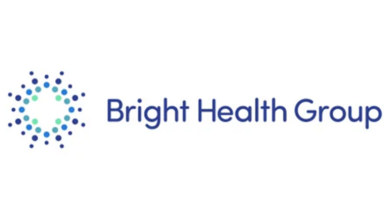One early adopter’s tips for AI deployment success

At the HIMSS AI in Healthcare Forum in San Diego next week, one analytics leader will discuss the artificial intelligence use cases he’s found most success with – and will offer tips and perspective on best practices for AI deployments in clinical settings.
Dr. Luis Ahumada, director of health data science and analytics at John Hopkins All Children’s Hospital – speaking on a panel with Sumit Nagpal, CEO of Cherish Health – will discuss his experience so far as an early adopter of AI and machine learning models.
He’ll offer some real-world examples of how Johns Hopkins is using AI-enabled tools to improve its care-delivery processes – automating and expediting clinical diagnostics and freeing up clinicians to focus more on patient care. He’ll describe overcoming barriers to AI adoption, best practices for integrating it into existing workflows and much more.
“AI has been helping,” says Ahumada, but it’s “an ongoing project.”
At John Hopkins, “we’re trying to understand more where the main benefits will be,” he said, because “resources are not available to everyone and AI is expensive.”
Ahumada sees value in two types of AI, with different characteristics of size, shape and scope.
“One is LLMs – but they’re not going to solve everything,” he said. “The other one is what we call traditional machine learning: creating the models for prediction and high-risk calculators, things like that. There will be a hybrid at some point between the two. But for the past 10 or 15 years, we’ve been focusing on the second one.”
Both are important for one use case John Hopkins All Children’s Hospital has been keenly focused on: clinical documentation.
“We have high-risk calculators for everything under the sun: readmissions or risks for surgery, complications, things like that. But at the same time, a lot of those problems are caused by inefficiencies within the system, in the documentation process. And in my view, we need to solve that first. And that’s where the current tools that we have at our disposal are probably aimed for.”
Data integrity is the “keystone and the bedrock for everything that we do with LLMs and ML.”
Dr. Luis Ahumada, John Hopkins All Children’s Hospital
Toward that goal, the health system has been focused on “getting better data,” he said. “We can use machine learning, we can use LLMs, we can use a lot of different things to collect this data better.”
Yes, there are also big challenges around missing data, validation, data integrity, says Ahumada. “Data is not perfect. It should be, but it is not. That’s a problem because we use that data that we collect every day, every second, to create models.”
Another basic hurdle has to do with “collecting and putting all of that data together,” he said. “Traditional machine learning loves huge volumes of data.” But it can often be a challenge to “put together even a small registry for hundreds of thousands of patients,” he explained.
But despite those challenges, Johns Hopkins is pushing forward with an array of different generative AI and machine learning use cases that Ahumada will describe in more detail in San Diego.
Data integrity is the “keystone and the bedrock for everything that we do with LLMs and ML,” said Ahumada.
But he’s also concerned also about cost, and about helping make sure health systems of any size – not just those with the resources of Johns Hopkins – have access to the kinds of AI tools that can help them improve their clinical and administrative processes.
Just this week, a report from KLAS was published showing that large health systems are already making hay with generative AI but smaller ones have been more limited in their embrace.
“AI is supposed to be open to everyone, but it’s not true because it is expensive,” he said. “You can use advanced LLMs, but even with that, you can set up an LLM in your shop [but] people need to understand that to be able to do that, you have to have people that know how to do it, and they’re not inexpensive. So yes, there are a lot of different benefits. But it’s going to cost money.”
Attend this session at the HIMSS AI in Healthcare Forum taking place on December 14-15, 2023, in San Diego, Calif. Learn more and register here.





